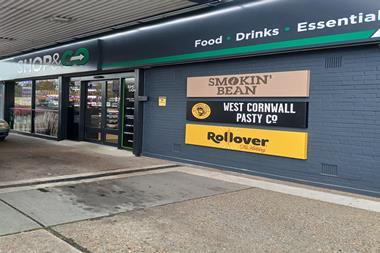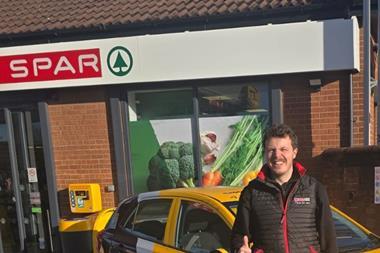Jac Roper on turning round the ‘bad press’ forecourts often receive; and banning an abusive customer

How do you turn a very old image around?
A couple of months ago I pondered the question of the unholy mix of fuel, food and flowers in a forecourt operation and the ‘bad press’ it often gets. This was prompted by a TV programme with the presenter absolutely agog at finding “the best chicken tagines in Morocco” at a restaurant on the site of a petrol station.
I subsequently received this jin response from Jon Brownsey who trades in Fordingbridge, Hampshire.
He writes: “I have been considering your question and discussed it with my Dad who is in his 68th year of petrol retailing.
“We think it all stems back to the early days of long hours and low margins. The staff that were sometimes employed were not great but were the best of what was available from those willing to work evenings and week-ends. The typical image of a petrol station employee was an uninterested youth with dubious hygiene reading a magazine and grunting at customers, and the shop – for what it was – was of a low standard and not well run.”
But he goes on: “I would suggest that this preconception is at least 35 years out of date and coincides with when petrol stations became retailers, rather than just selling ‘dirty’ products like diesel, oil and coal etc. Forecourt shops sell a wide range of goods and services now and have upped their game beyond measure, but the poor image of petrol stations remains.”
And he adds: “I currently have a fantastic student working for me during her gap year, and only this week the headmaster of the local school she attended came in. When he recognised her his comment was ‘I do hope this is just temporary?’. If she had been working in John Lewis doing a similar job for the same money, would he have said this? Maybe not. The perception is that you only take a job in a petrol station if you have given up all hope and self respect with the only alternative being the workhouse.
“Dad made the comment that the standard of person needed to do the job now is on a par with a bank cashier, and having done both jobs in my working life I wouldn’t disagree.
“I’m not sure if this answers your question about Moroccan chicken, but I believe that it is all a question of public perception and I am not sure if we as an industry will ever shake this off.
“Having said all of the above, I have four members of staff with over 15 years’ service each and two with 10 years’ each, and it is our 70th anniversary this year so we must be doing something right!”
All I can add to that is congratulations and Happy Anniversary!
Get out and don’t come back!
A West Midlands retailer rang with an anonymous request: what is the procedure for banning someone from his forecourt?
Apparently the ‘customer’ had been abusive to his staff. There had been three abusive occasions so far, all of them involving the ‘rip off’ price of petrol and including lots of swearing and discriminatory remarks and all in a threatening manner.
Simple fact: your premises are private property. You can ban anyone you like. Theoretically you don’t even need a reason although it is best to steer clear of the ‘ist’ ones (ageist, sexist, racist, gender, religion and so on).
The most common reasons for banning anyone are shoplifting, being drunk and disorderly, and abusing staff (abuse of staff should never be tolerated).
Or being very smelly. I once had a call from a retailer over that scenario. Okay to ban on the basis of offence to the olfactory senses? he asked. You bet’cha (especially as this patient retailer had kept a spray under the counter for several months to eliminate odours afterwards).
The best approach is softly-softly – if possible take them outside (because you don’t want them cutting up rough in your store) and politely inform them that you would rather they did not come into your premises any more and that if they return in the future they will be trespassing. You can then order them to leave. And if they do come back you can call the police. Whether the police show up or not is of course another question.
Ideally, if you can, put it in writing, although this is obviously often not possible. But if you can because you have their name and address, then send it recorded delivery and keep a copy for yourself. Or you could just hand it to them over the counter next time should they come back.
Contact Jac Roper
You can email your queries, news and views to:
jac@roper-biz.co.uk
or call:
020 8502 9775

































No comments yet